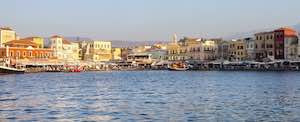By Dan Calabrese ——Bio and Archives--June 29, 2015
World News | CFP Comments | Reader Friendly | Subscribe | Email Us
 If you want to know what happens when a nation absolutely refuses to reform its insane spending - even when it finds itself at the brink of fiscal collapse - I give you Greece. Not that you want it. The International Monetary Fund doesn't. The Eurozone doesn't. The Greek banking system is now shut down, and we're a day away from Greece defaulting on its IMF bailout loans. When the Europeans presented Greece with an ultimatum - reform the spending now or be cut off - the most the Greek politicians were willing to do was call a referendum on the matter. And as we now see, that's not anywhere near good enough:
If you want to know what happens when a nation absolutely refuses to reform its insane spending - even when it finds itself at the brink of fiscal collapse - I give you Greece. Not that you want it. The International Monetary Fund doesn't. The Eurozone doesn't. The Greek banking system is now shut down, and we're a day away from Greece defaulting on its IMF bailout loans. When the Europeans presented Greece with an ultimatum - reform the spending now or be cut off - the most the Greek politicians were willing to do was call a referendum on the matter. And as we now see, that's not anywhere near good enough:The arguments have raged for five months. The Greeks had their red lines. They would not adopt any new measures that deepened austerity, and they needed a commitment to discuss debt relief. They made some concessions on taxes and pension reform, but they were not enough for the EU-IMF creditors. Trust had all but vanished; they doubted the reforms would be implemented. Finally on Friday, the EU and IMF made their final offer: a five-month extension to the bailout programme with €12bn (£8.5bn) in funding, but with the condition that new reforms had to be accepted. Alexis Tsipras was not confident he could get the deal through parliament and, most importantly, hold his fragile coalition together. His opponents say that in opting for a referendum, he has put his party above the country. The referendum announcement stunned Europe's leaders. Some finance ministers learnt of it on Twitter. Not surprisingly, they decided that the poll essentially ended the negotiations. Some ministers say that they were close to reaching a deal - 98% there.
View Comments
Dan Calabrese’s column is distributed by HermanCain.com, which can be found at HermanCain
Follow all of Dan’s work, including his series of Christian spiritual warfare novels, by liking his page on Facebook.